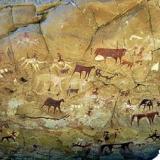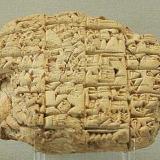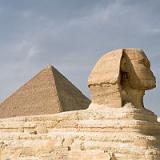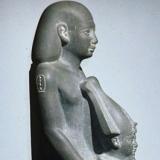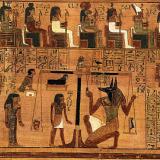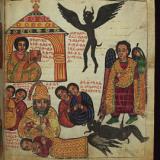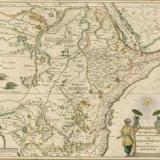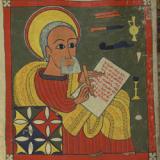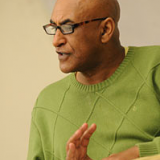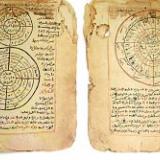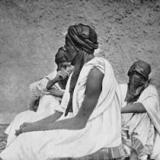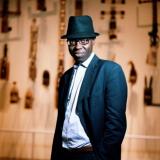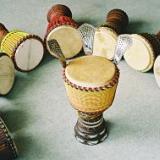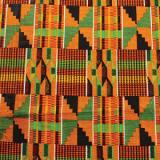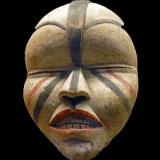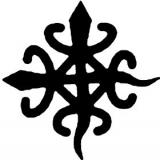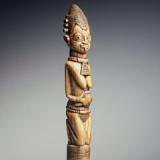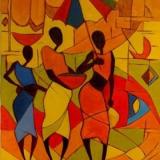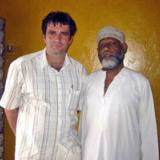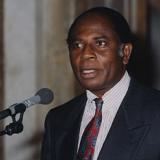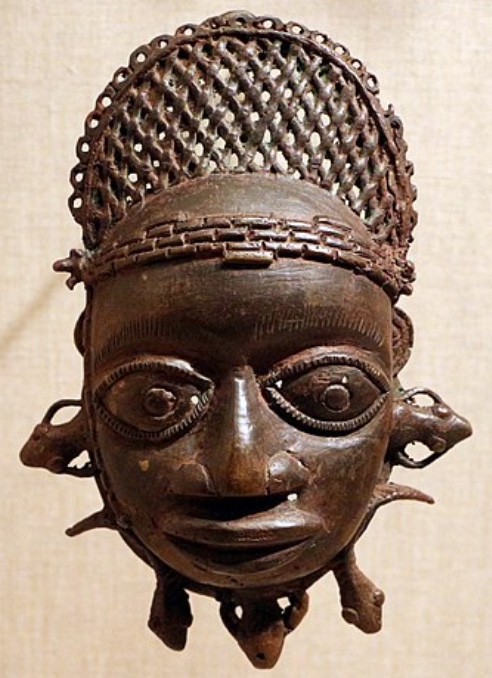Locating and Debating Precolonial African Philosophy
The first group of episodes on Africana philosophy really does begin at the very beginning, as we consider the hypothesis that philosophy is a universal human activity and was already present in prehistoric Africa. From there we move on to the philosophical texts of ancient Egypt, focusing on works of ethical instruction and dialogue, and then to precolonial philosophical texts from Ethiopia and Islamic intellectual traditions in sub-Saharan Africa. Our focus turns after that to attempts to delineate philosophical ideas in African oral traditions and the debate sparked by these attempts. What can we learn and what should we say about traditional African ideas concerning time, God, or the human person?
Look out for interviews with Souleymane Bachir Diagne, Samuel Imbo, Teodros Kiros, Kai Kresse, Nkiru Nzegwu, Richard Parkinson, and co-host Chike Jeffers!
• L. Apostel, African Philosophy: Myth or Reality? (Gent: 1981).
• M.K. Asante, The Egyptian Philosophers: Ancient African Voices from Imhotep to Akhenaten (Chicago: 2000).
• P.O. Bodunrin (ed.), Philosophy in Africa: Trends and Perspectives (Ife: 1995).
• L.M. Brown, African Philosophy. New and Traditional Perspectives (New York: 2004).
• G. Floistad (ed.), African Philosophy (Dordrecht: 1987).
• R. Finnegan, Oral Literature in Africa (Oxford: 1970).
• D. Forde (ed.), African Worlds: Studies in the Cosmological Ideas and Social Values of African Peoples (Oxford: 1954).
• S. Gbadegesin, African Philosophy: Traditional Yoruba Philosophy and Contemporary African Realities (New York: 1991).
• K. Gyekye, An Essay on African Philosophical Thought: The Akan Conceptual Scheme (Cambridge: 1987).
• B. Hallen, A Short History of African Philosophy (Bloomington: 2002).
• C.B. Hilliard (ed.), Intellectual Traditions of Pre-Colonial Africa (Boston: 1998).
• P.J. Hountondji, African Philosophy: Myth and Reality (London: 1983).
• S.O. Imbo, An Introduction to African Philosophy (Lanham: 1998).
• J. Jahn, Muntu: African Culture and the Western World, trans. M. Grene (New York: 1961).
• B.B. Janz, Philosophy in an African Place (Lanham: 2009).
• C. Jeffers (ed.), Listening to Ourselves: A Multilingual Anthology of African Philosophy (Albany: 2013).
• M. Kebede, Africa's Quest for a Philosophy of Decolonization (Amsterdam: 2004).
• S. Kwame (ed.), Readings in African Philosophy: An Akan Collection (Lanham: 1995).
• D.A. Masolo, African Philosophy in Search of Identity (Bloomington: 1994).
• J.S. Mbiti, African Religions and Philosophy (London: 1969).
• D.A. Masolo and I. Carp (eds), African Philosophy as Cultural Inquiry (Bloomington: 2000).
• F. Ochieng'-Odhiambo, Trends and Issues in African Philosophy (New York: 2010).
• H.O. Oruka, Sage Philosophy: Indigenous Thinkers and Modern Debate on African Philosophy (Leiden: 1990).
• T. Serequeberhan (ed.), African Philosophy: The Essential Readings (New York: 1991).
• T. Serequeberhan, The Hermeneutics of African Philosophy: Horizon and Discourse (London: 1994).
• C. Sumner, Classical Ethiopian Philosophy (Los Angeles: 1994).
• R.F. Thompson, Flash of the Spirit: African and Afro-American Art and Philosophy (New York: 1983).
• K. Wiredu, Philosophy and an African Culture (Cambridge: 1980).
• K. Wiredu, Cultural Universals and Particulars: An African Perspective (Bloomington: 1997).
• K. Wiredu (ed.) A Companion to African Philosophy (Malden: 2004).
• K. Wiredu and K. Gyekye, Person and Community: Ghanaian Philosophical Studies I (Washington DC: 1992).
• R.A. Wright (ed.), African Philosophy. An Introduction (Washington: 1977).
Posted on
We kick off the new series by explaining the scope and meaning of "Africana philosophy."
Posted on
Might philosophy be as old as humankind as we know it? We investigate the implications of findings concerning the origins of humankind in Africa.
Posted on
Do the cuneiform writings of Babylonian culture show that it had its own philosophy?
Posted on
Ancient Egyptian figures and writings including the Pyramid Texts, Imhotep, and the "first monotheist" Akhenaten reflect on the nature of things and questions of morality.
Posted on
Ethical reflection in ancient Egyptian grave inscriptions and in works of moral advice, such as the Maxims of Ptahhotep and the Instructions named for Amenemope, Ani, and Merikare.
Posted on
Demands for ma’at (justice or truth) and a confrontation with the soul, in the Tale of the Eloquent Peasant and Dispute Between a Man and his Ba.
Posted on
Egyptologist Richard Parkinson joins us to talk about the context and meaning of the Eloquent Peasant and other literary works of ancient Egypt.
Posted on
Translations of religious and philosophical texts into Ge’ez, a national epic called the Kebra Nagast, and other developments in the story of philosophy in Ethiopia.
Posted on
The 17th century Ethiopian rationalist Zera Yacob, hailed as the first modern Africana philosopher.
Posted on
Walda Heywat’s reaction to the thought of his teacher Zera Yacob, and the dispute over the authenticity of these two Ethiopian philosophers.
Posted on
Teodros Kiros discusses his work in political philosophy and the history of Ethiopian philosophical thought.
Posted on
The spread of Islamic scholarship in subsaharan Africa, focusing on intellectuals of the Songhay empire around the Niger River in the 15th-17th centuries.
Posted on
Uthman Dan Fodio and his family were scholars, poets, and warriors whose jihad in 19th century Nigeria created the Sokoto Caliphate.
Posted on
Peter speaks to Souleymane Bachir Diagne about Islamic scholars in West Africa.
Posted on
An introduction to the “ethnophilosophy” approach inaugurated by Placide Tempels, its promises and potential pitfalls.
Posted on
A conversation with Sam Imbo on approaching oral traditions as philosophy and the Ugandan thinker and poet Okot p'Bitek.
Posted on
John Mbiti’s influential and controversial claim that traditional Africans experience time as having “a long past, a present, and virtually no future.”
Posted on
Is traditional African religion in some sense monotheist, despite the worship of many divinities?
Posted on
Traditional African ideas about personhood, which challenge assumptions about the relation between mind and body, self and other.
Posted on
Emphasis on the value of community as a major theme in African philosophy.
Posted on
Special forms of knowledge and the explanation of misfortunes in African tradition.
Posted on
What archeology, ethnography, and philosophical interpretation tell us about the diverse and often ambiguous roles of men and women in traditional African societies.
Posted on
An interview with Nkiru Nzegwu on matriarchy, sexuality, and gender fluidity in Africa (with a quick chat at the end about her work on African art).
Posted on
Paulin Hountondji (pictured) and other African philosophers criticize ethnophilosophy and advocate a universalist approach.
Posted on
Henry Odera Oruka’s new method for exploring philosophy in Africa, based on interviews with wise individuals.
Posted on
An interview with Kai Kresse (pictured here with Ustadh Mahmoud Mau) who discusses his efforts to do "anthropology of philosophy" on the Swahili Coast.
Posted on
As the twentieth century draws to a close, the critique of ethnophilosophy gives way to approaches that continue to privilege the study of precolonial traditions, including the approach promoted by Kwasi Wiredu (pictured).
Note: we dedicate this episode to the memory of Kwame Gyekye, who passed away earlier this month.
Posted on
Co-host Chike Jeffers and Peter chat about the themes and questions raised by the podcast so far.





